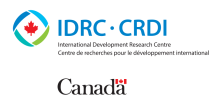Resource information
The security of women’s entitlement to land and land-based resources in the East Africa region has been compromised by a combination of unfavourable laws and government policies, socio-economic change toward greater commoditization of and competition for land and land-based resources, and exclusionary practices defended as ‘customary’. Law, policy, and practice have excluded women in land ownership and control and made their access tenuous. Yet land and resources linked to it form a critical part of pastoral and forest dependent communities’ life lines and lack of access to these resources can lead to the decimation of the affected communities because their livelihoods are linked to particular landscapes. For women in such communities, this exclusion is exacerbated by the marginalisation of the entire community polity in national policies generally. Gender within this context comprises an additional layer of exclusion. This research sought to explore access to land and land based resources among women in the Hadza, Batwa, Maasai, Ogiek and Karamojong communities (representing pastoralist and forest-dependent communities in East Africa) while exploring multiple exclusions and their impacts on women’s citizenship. It specifically sought to understand and make proposals on how best to secure the rights to land and land-based resources for women in these communities, in view of the fact that they have to negotiate between multiple citizenships. The research was carried out using desk-based (review of literature) and field-based methods (social mapping, surveys, interviews and focus group discussions) to elicit a contextual understanding of how women’s marginalization among the Hadza, Batwa, Maasai, Ogiek and Karamojong is generated, entrenched and rationalized. The deepened and contextual understanding was to help us inform advocacy initiatives and engage with government policies both at local, national and regional levels.


